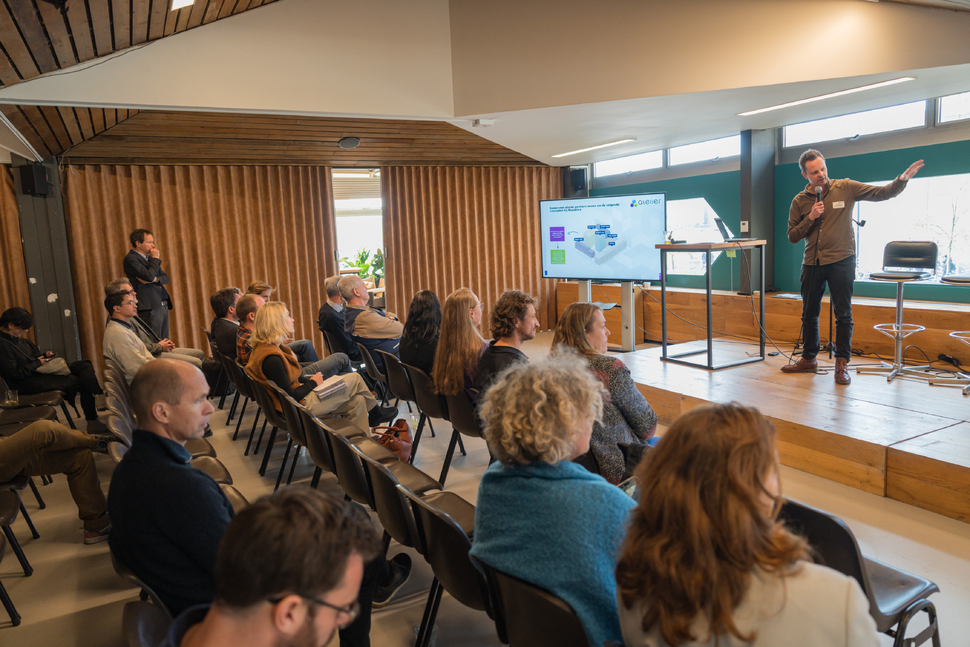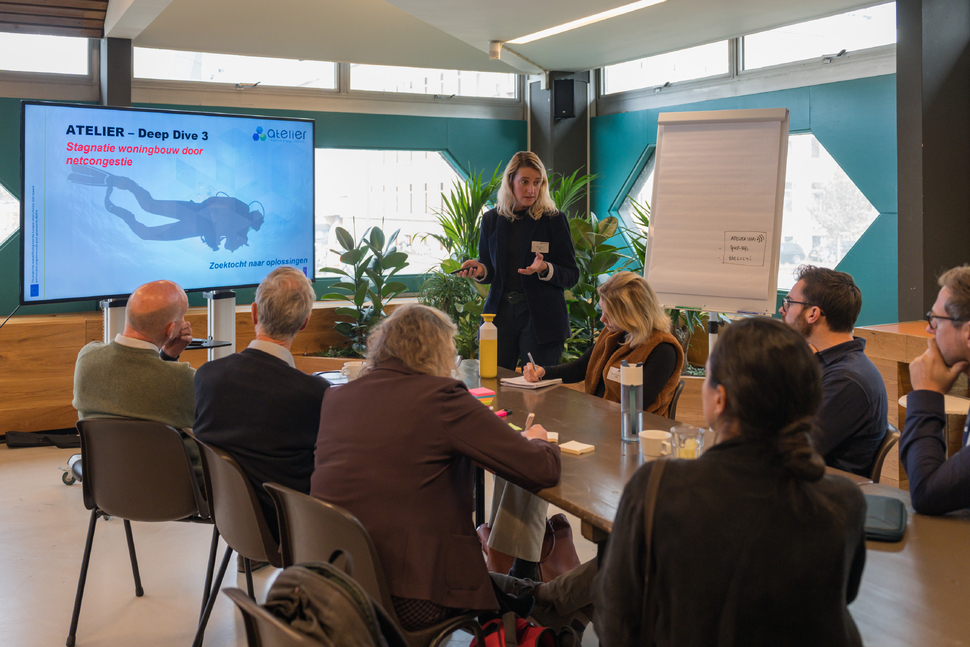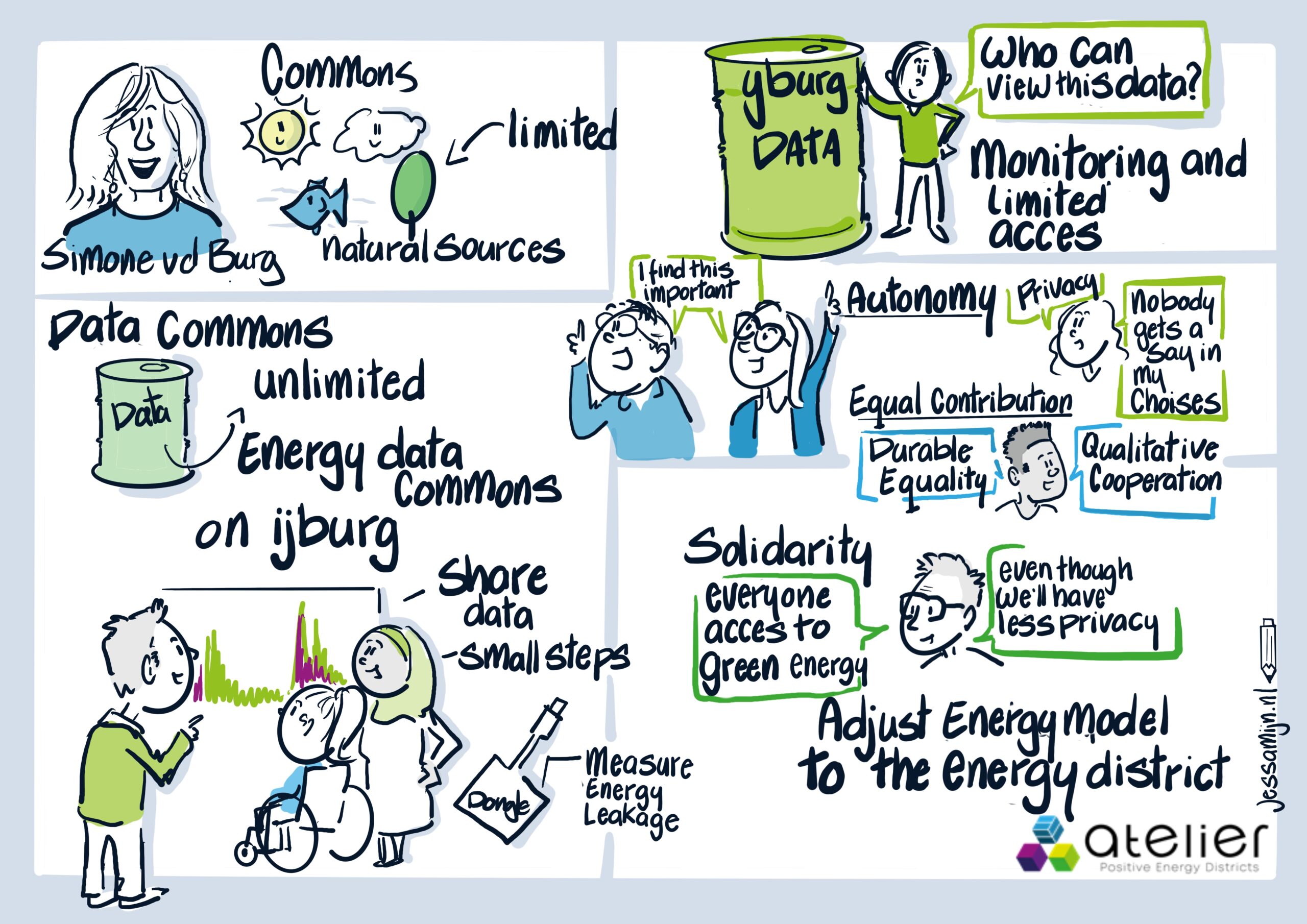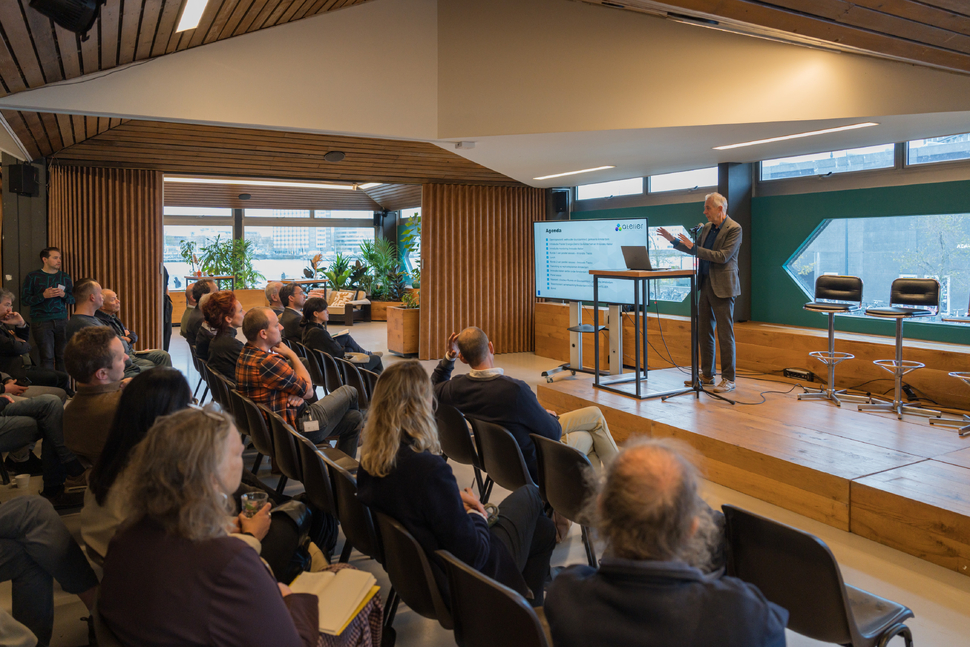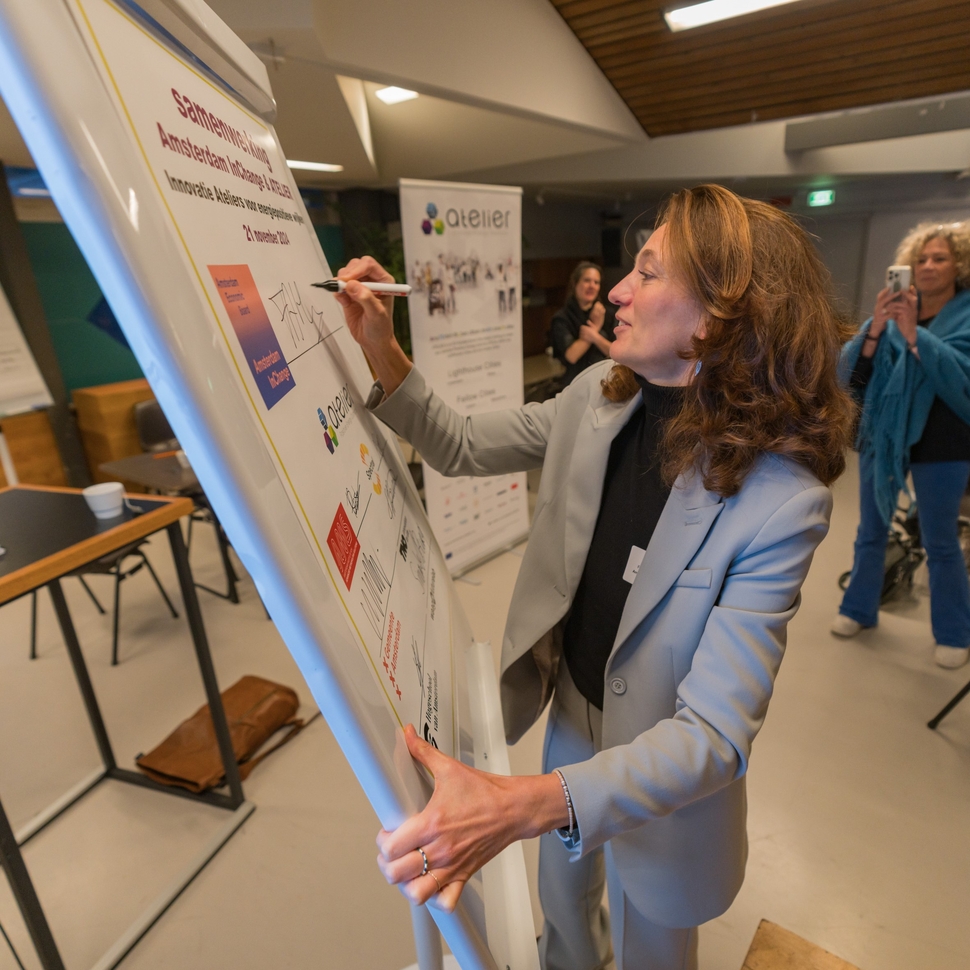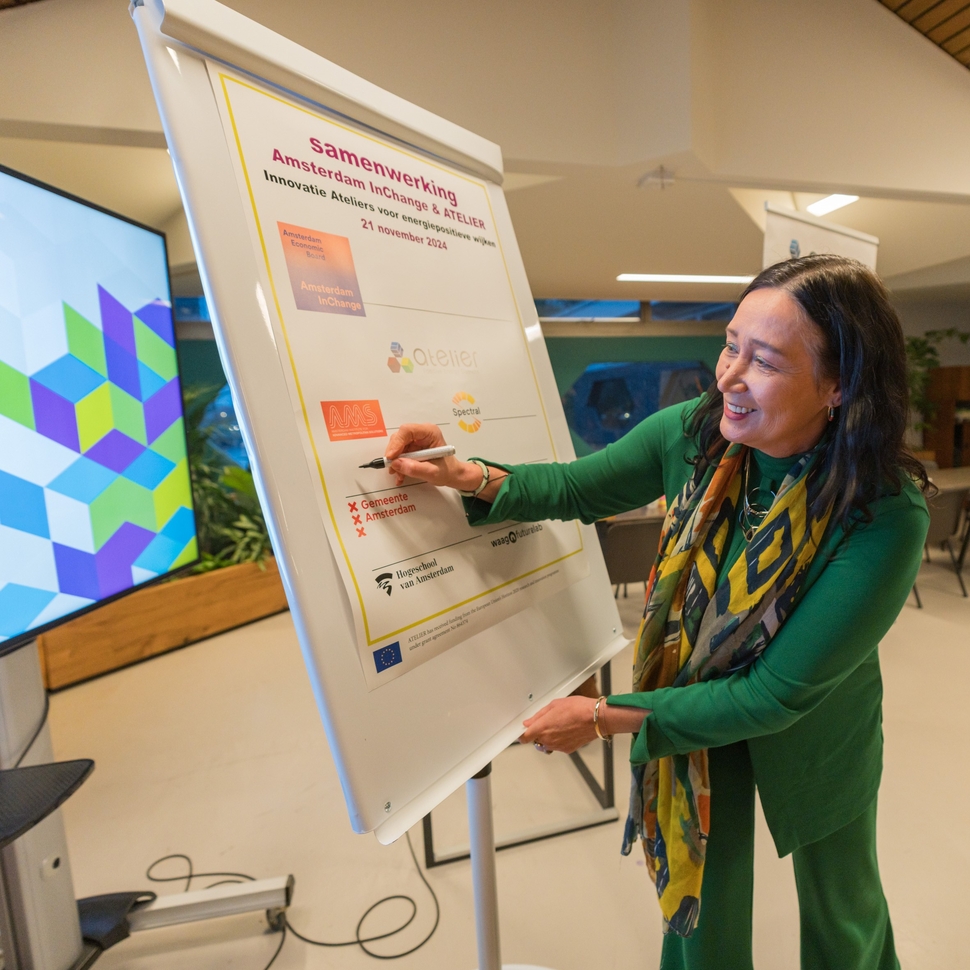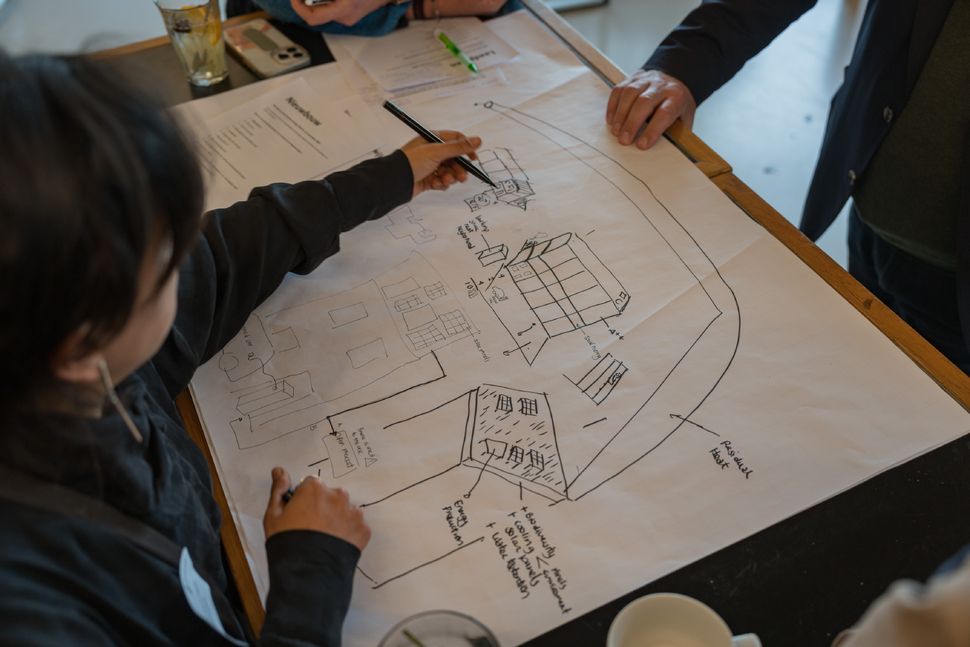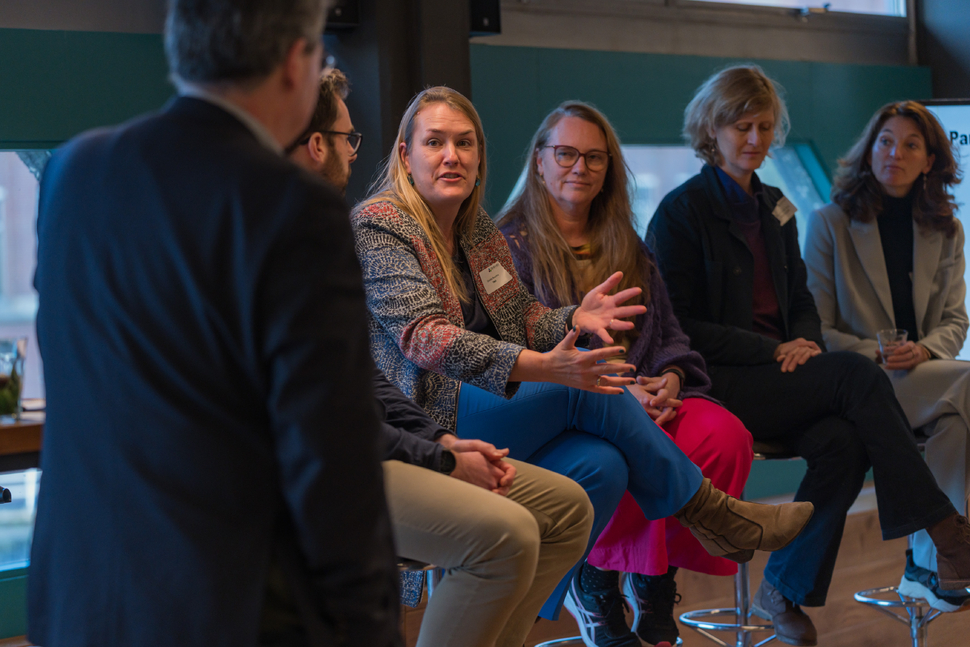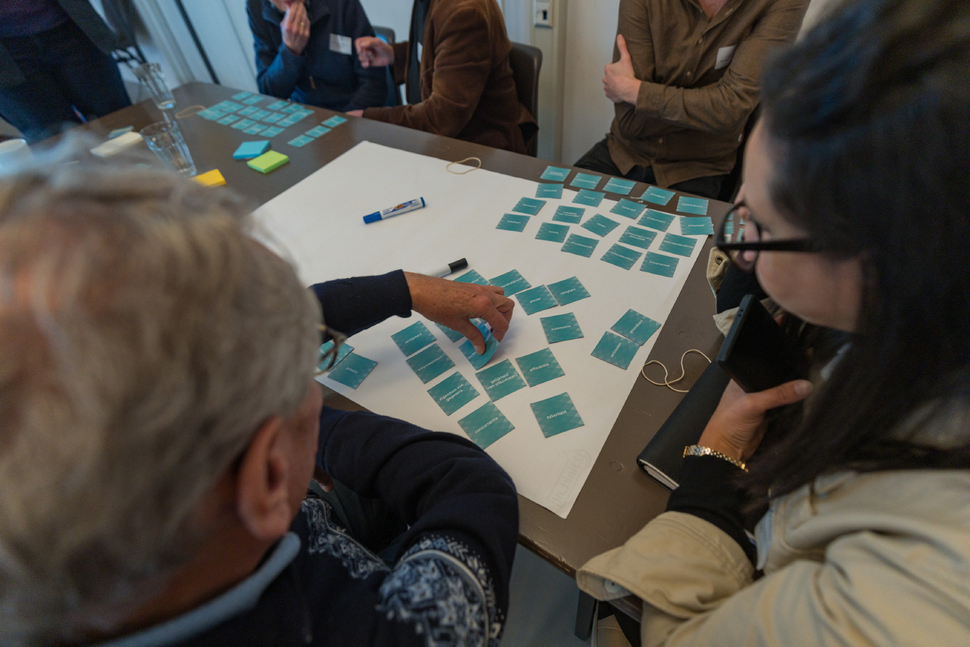On November 21, the Amsterdam core partners organized a networking event for local stakeholders on energy-positive neighbourhoods, to share the main results, findings and lessons learned from supporting the demonstration projects with Innovation Ateliers..
In Buiksloterham, ATELIER is supporting the realization of PED projects REPUBLICA and POPPIES by implementing smart energy solutions in real practice. Through the organisation of Innovation Ateliers, knowledge and experience from outside the project is being channelled into the Buiksloterham, on answering questions like: Who is involved in establishing an energy community? What are the options for active energy sharing? How can batteries be used to mitigate grid congestion? And how can the concept of data commons contribute to sustainable neighbourhood development?
After five years of Innovation Ateliers, the results were presented, and future plans are initiated in collaboration with the innovation platform Amsterdam InChange. TNO, AMS Institute, Spectral, Waag Futurelab, the Amsterdam University of Applied Sciences and the Municipality of Amsterdam signed the collaboration to further develop the lessons learned over the next 1.5 years.
The day was opened by Dirk de Jager, Alderman Sustainability for the Municipality of Amsterdam. Colleagues, knowledge partners, municipalities, energy networks, cooperatives, and other interested parties in the field attended the event. Their reflections were gathered in several deep dives focused on the REPUBLICA energy community, role of local energy systems in the energy transition, financing multiple investments simultaneously, and energy data commons.
We look back with much positive energy on a day full of valuable exchanges and feel inspired to move the transition forward!
Deep Dives take-aways
In the session on the role of local energy systems in the energy transition (led by the Amsterdam University of Applied Sciences), several obstacles for implementing a Positive Energy District (PED) were identified. These included regulations, access to knowledge, investments and financing, complex stakeholders, and conflicting interests. However, a PED can address challenges within the heat transition, energy costs, flexibility, and integration of renewable energy. Participants were optimistic about the future of PEDs and their positive impact on the energy balance and systemic effects. A notable challenge is the difficulty of implementing a PED in the existing built environment.
In the session on the Republica energy community, the central question was: “What can we learn from collective solutions for future housing projects?” The Republica project has a private network, forms a community, uses various flexible assets, and is connected to the district heating network. Discussions included how these different assets have been effectively deployed to address congestion challenges. The private network was made possible through an experimental regulation that is no longer available. It was explored whether sharing limited transport capacity with the community smartly could also be applied to developments connected to a public network. However, none of these solutions currently appear feasible for households and small connections under the existing rules.
The session on financing multiple investments simultaneously (led by TNO) highlighted the benefits of an integrated energy system for different stakeholders, who can share costs and revenues through a PED fund, for instance. This fund could also be financed from unexpected sources, such as budgets for mobility or welfare. The discussion also touched on investing energy budgets more in greenery, as it cools and delivers more than an installation. The side effects of PEDs were discussed, such as fewer cars due to electric shared mobility, improved traffic safety, and better land use. PEDs can help reduce grid congestion, potentially co-financed by grid operators. Additionally, the distinction between PEDs (more focused on residential areas) and energy hubs (more focused on businesses) and their potential interconnection was addressed.
The session on energy data commons (led by Waag Futurelab) emphasized the importance of discussing and aligning values such as sustainability and fairness. Although participants often start with expectations about privacy and costs, independence and solidarity often prove to be more significant. Many aim for open-source technology to effectively regulate energy within the neighbourhood without influence from large companies or the government. There is often a sense of powerlessness in sharing energy data, but a step-by-step action plan with clear perspectives for collaboration provides reassurance. Effective participatory governance and a conflict resolution system are seen as essential to avoid frustrations. Parking dilemmas creates space for constructive discussions and finding solutions. A structured dialogue helps to look beyond conflicts and collaboratively develop new ideas.
Author: City of Amsterdam
Picture credits: Icon image: data commons
